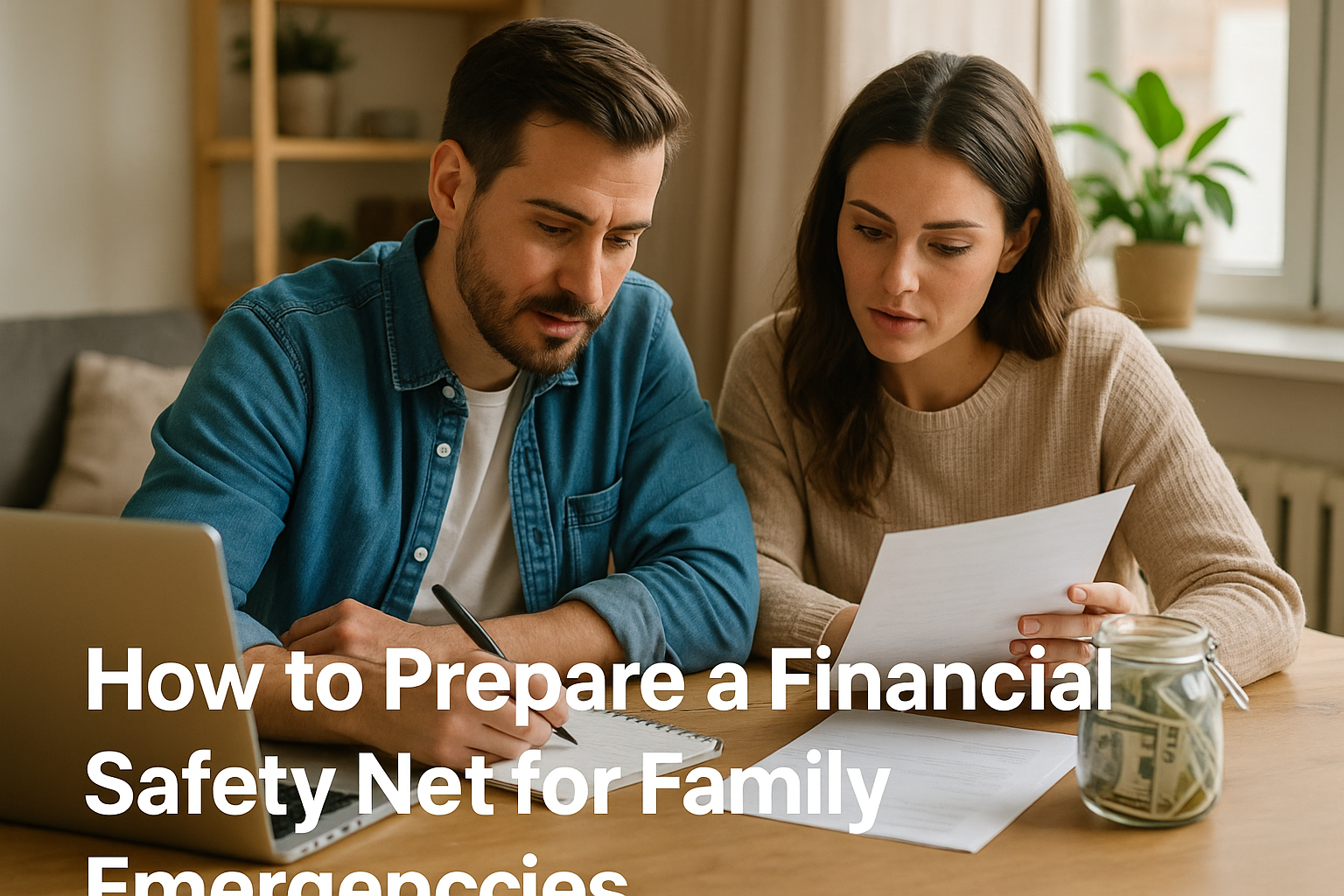Family emergencies often come without warning — and when they do, the last thing you want is to worry about money. Whether it’s a sudden medical issue, unexpected travel to support a loved one, or a temporary loss of income, having a financial safety net gives couples confidence and peace of mind during difficult times.
Here’s how to create a shared emergency fund that truly supports your family.
Understand What a Family Emergency Fund Covers
An emergency fund isn’t just for flat tires or broken appliances. A well-prepared couple considers a broader range of potential needs, such as:
- Medical emergencies for children or parents
- Last-minute travel to visit family
- Unexpected caregiving costs
- Job loss or reduced income
- Major home repairs
- Funeral expenses or legal fees
Think of it as a flexible cushion that helps you take action quickly when life changes fast.
Set a Realistic Savings Goal
Aim to save at least 3 to 6 months of essential expenses. If you have dependents or live on one income, you may want to stretch that to 9 months.
To estimate how much you’ll need, calculate:
- Monthly housing costs
- Food and household essentials
- Insurance and healthcare
- Transportation
- Minimum loan or debt payments
Multiply that total by 3 to 6. That’s your goal — and every step toward it matters.
Start Small, Build Consistently
If a full emergency fund feels overwhelming, start with a small milestone — $500 or $1,000 — and grow from there.
Make saving automatic:
- Set up recurring transfers to a high-yield savings account
- Use windfalls (like tax refunds or bonuses) to boost your fund
- Allocate a small portion of each paycheck — even $25/week adds up
Consistency matters more than size at the beginning.
Keep the Fund Easily Accessible (But Separate)
Store your emergency fund somewhere safe and liquid — not locked in investments or tied to everyday checking.
Ideal options include:
- High-yield savings accounts
- Money market accounts
- Separate bank account with limited withdrawal access
Avoid using this fund for anything other than true emergencies.
Create Emergency Rules Together
To avoid confusion or arguments in stressful moments, decide in advance:
- What qualifies as a “real” emergency?
- How much can be withdrawn without discussion?
- How will you replenish the fund after using it?
These ground rules keep things fair and avoid impulsive spending.
Review and Update the Fund as Life Changes
Your financial needs will shift as you grow together. Check in at least once a year, especially after milestones like:
- Having a child
- Changing jobs
- Buying a home
- Caring for aging parents
Adjust your fund to match your current reality — not the one from two years ago.
Combine Emergency Planning with Insurance
A solid emergency fund works best alongside good insurance. Review your coverage:
- Health insurance for both partners
- Life insurance (especially if you have kids or a mortgage)
- Disability insurance
- Renter’s or homeowner’s insurance
- Pet insurance, if applicable
Having both savings and coverage creates a more resilient plan.
Talk About Extended Family Responsibilities
Sometimes, family emergencies involve people outside your household. Ask yourselves:
- Would we help a parent or sibling financially?
- How much are we comfortable contributing?
- Should we set aside a separate “family support” category?
Being aligned on boundaries can help avoid emotional and financial strain later.
Celebrate Progress Together
It may not be glamorous, but hitting emergency fund milestones is a big deal. Celebrate when you reach:
- Your first $1,000
- A full month of expenses saved
- Your 3–6 month goal
These wins reinforce the habit and strengthen your bond as financial partners.
Final Thought
You can’t predict every family emergency — but you can prepare for them together. A well-built financial safety net isn’t just about money — it’s about protecting your peace, your time, and your relationship.
Start small, stay consistent, and focus on what matters: taking care of each other and the people you love.
